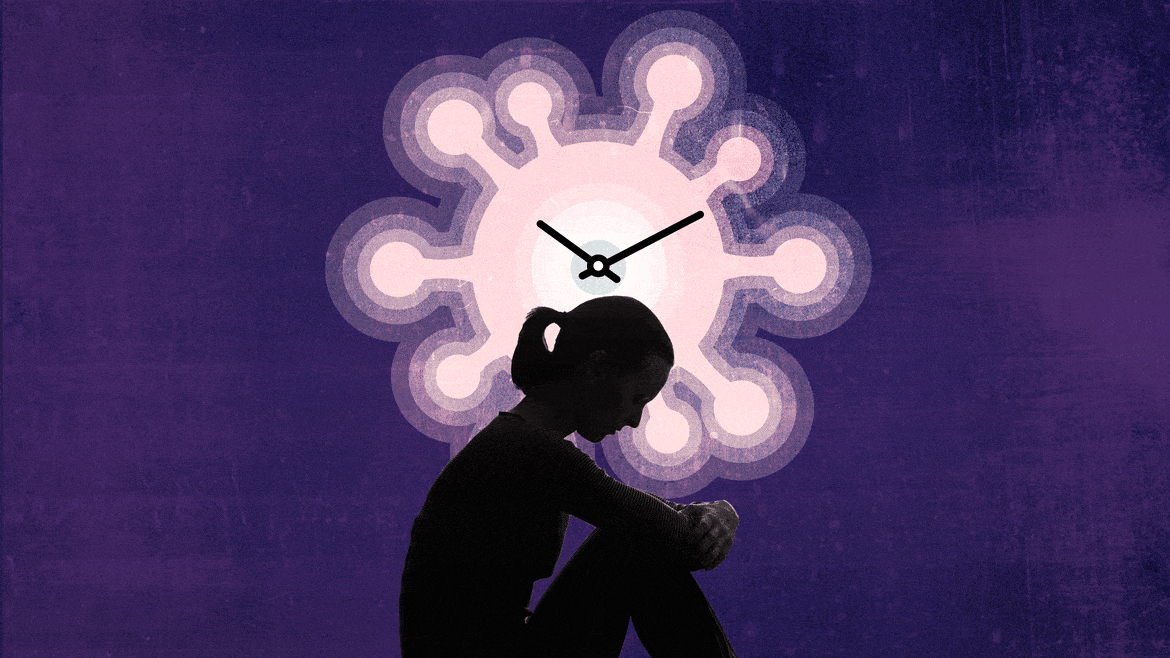Photo Illustration by Thomas Levinson/The Daily Beast/Getty
As infections go, Jeffrey Siegelman’s first bout with COVID was unremarkable. The emergency physician and professor at Emory School of Medicine likely contracted the virus while on the job in August 2020. He experienced the usual symptoms—fever, headaches, aches, chills, and loss of smell and taste. But in the weeks after he recovered, other symptoms set in, including heart palpitations, insomnia, and significant fatigue after even minor physical exertion. The headaches also never went away, he said.
“Here we are two years later, and I’m still dealing with a lot of that stuff,” Siegelman told The Daily Beast.
Tens of millions of Americans, Siegelman included, are suffering with the after-effects of a COVID infection. Long COVID, defined by the Centers for Disease Control and Prevention, represents “a wide range of new, returning, or ongoing health problems” that people experience weeks after being infected with the virus. A new study, published Wednesday in The Lancet Psychiatry, measured the range of ongoing neurological and psychiatric symptoms that over a million people faced after a diagnosed COVID infection, and compared them to people who contracted any other respiratory virus.
Got a tip? Send it to The Daily Beast here

